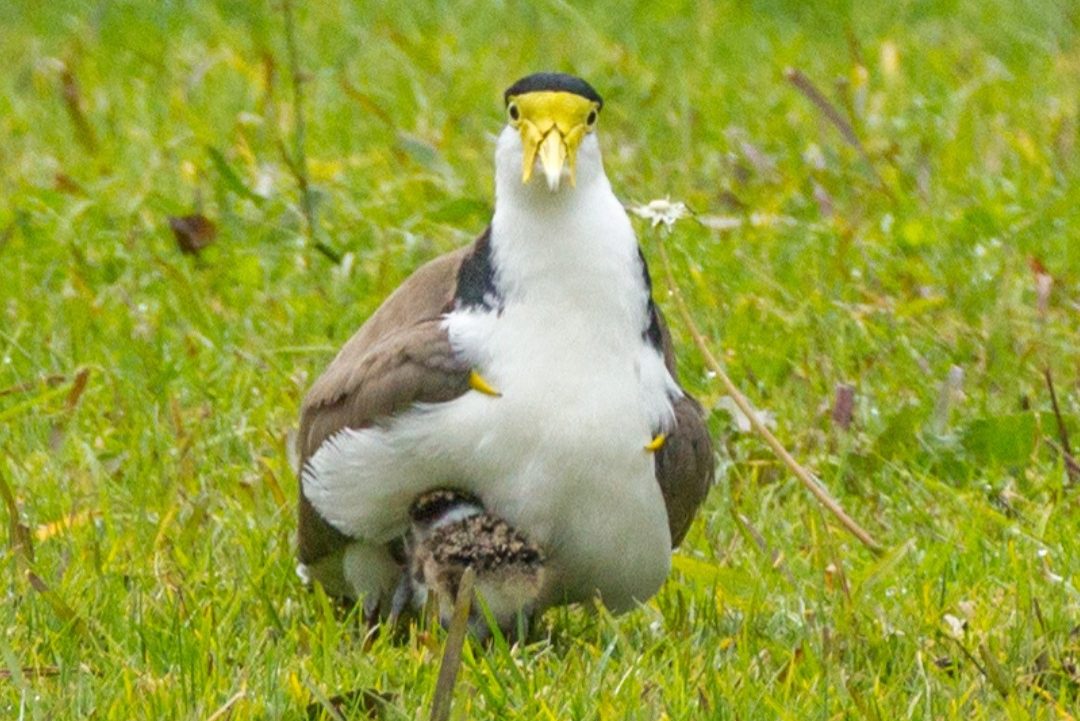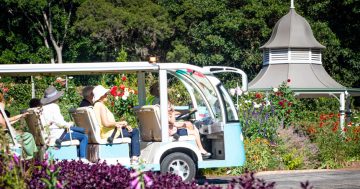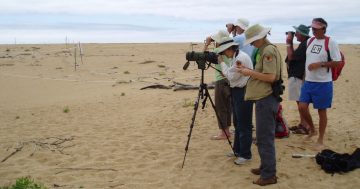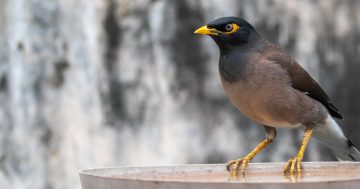
A masked lapwing (better known as a plover) is the ultimate helicopter parent when it comes to protecting its young. Photo: WIRES.
I reckon masked lapwings have unfairly been given a bad rap.
Right there is the first problem they have to face – after all, maybe if we all referred to them by their proper name, masked lapwings, rather than plovers, they’d stand a much better chance of being viewed with a bit more warmth and less fear.
Admittedly they don’t do themselves any favours. They sound cranky and they swoop on their fellow feathered friends and any human who accidentally strays into their territory. They even walk with attitude, head down and strutting furiously across the grass.
I’ve been watching a pair of plovers outside of my office window for the past couple of months.
They established a nest near a swampy bit of ground with plenty of tasty tidbits on offer, also a favourite with ibis, ducks, crows and the occasional heron.
I’ll concede that generally lapwings are probably not the sharpest tools in the bird world shed when it comes to choosing a nesting location, often favouring sports ovals, bowling greens, golf courses, by the side of busy highways, or even a roof.
They’re definitely not out of sight nor out of mind if you happen to stumble into their territory, especially when they are preparing to become parents or when they finally have chicks.
Like magpies, they’re fiercely protective parents and that’s the main reason for their bad rep. In human terms, they’re the ultimate helicopter parents but with an aggro attitude.
These guys show no fear and put on a great show of bravado to keep any perceived threat – whether that be human, animal or fellow bird – away from their precious nest.
And it doesn’t matter if a threat is on the ground, near the nest, or in the air, the plucky plovers are prepared to take on all comers.
But what few realise is their act is mostly just that – a bluff. Plover parents will do anything to protect their offspring, whether that’s a sudden swoop or a loud ‘kekekekek’ call which threatens the eardrums.
However, they will rarely actually make contact with a human passer-by, unlike magpies.
Those little spurs on their wings – just for show. Definitely not poisonous, despite what we may have been told as kids.
They’re great actors – adults have been known to pretend they have a broken wing in an attempt to lure the intruder away from a nest. While one parent leads the kids away from danger, the other one sprints off in the opposite direction and then drops to the ground as it’s injured. If the predator gets closer it will then suddenly jump to its feet and take its act even further away from its offpsring. Clever little buggers.
Even at night you’ll sometimes hear them – no wonder they’re cranky sods if they’re awake all night on guard duty.
Not only that, but plovers are equal opportunity parents. The female will lay up to four eggs and then both parents take turns incubating the eggs and keeping an eye out for threats, both as noisy and protective as each other.
I assumed my original plover pair had safely raised their young and flown off to parts unknown when they went missing after a few weeks.
But this week two more have turned up and appear to be staking their claim down near the swamp. I don’t know whether they’re the parents returning to breed again (apparently it can happen more than once in a season) or if they’re the offspring making their own way in the world, albeit in their parents’ territory.
If they’re the kids, they’re already making their presence known in the neighbourhood. They scare off the ibis, more than three times their size, whether it’s in the air or on the ground. Obviously there’s a pecking order at play and they’re at the top of the order.
Plovers – sorry, masked lapwings – often come back to the same place to nest, so I’m looking forward to a return visit next year and more entertainment from the plucky plover family.















